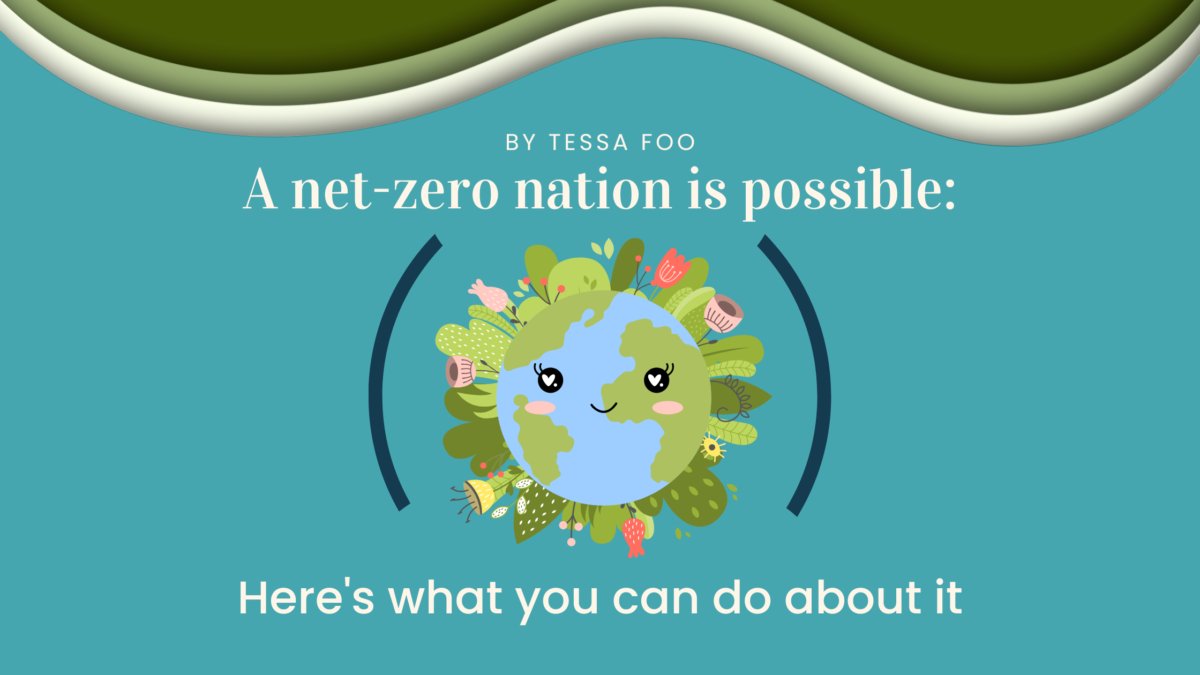Singapore has raised its climate ambition to reach net-zero greenhouse gas emissions by 2050. Deputy Prime Minister Lawrence Wong said the nation’s greenhouse gas emissions will reach about 60 million tonnes in 2030 after peaking earlier, a stronger emissions target compared to the previous 65 million tonnes.
Let’s backtrack, shall we? What does net zero mean in the first place? Put simply, net zero refers to achieving a balance between the amount of greenhouse gas produced and the amount removed from the atmosphere.
Singapore’s commitment to net zero is important as we will be aligning our targets with the ones set by climate scientists. To keep global warming to no more than 1.5°C, global emissions must peak by 2025, be reduced by 43% by 2030 and reach net zero by 2050.
A slew of measures will be rolled out to help the nation achieve its targets, such as an increase in carbon tax, green buildings and electrification of vehicles. Residual emissions from certain sectors, such as aviation or some industrial processes, will be removed by the purchase of carbon offsets or the use of technology to remove carbon from the atmosphere.
At this point, you may be thinking that net zero sounds doable. You may wonder: what role do I play in all of this? If the public sector is leading this transition, I don’t have to do anything by myself… right?
To me, sustainability is a collective action problem. Collective action takes place when a number of people work together to achieve a group goal or common good—in this case, sustainability for current and future generations. Although we will all benefit from sustainability, we think that our individual participation in this movement is unlikely to be the deciding factor in the attainment of the common good. This means that for every person our age advocating for environmental change on the frontlines, there will be countless more of us content with staying at home.
After all, when we’re discussing multilateral and high-complexity issues such as climate change, we often rely on policymakers to call the shots. They’re the ones with the most power—to decide the state agenda, enact legislation and penalise uncooperative stakeholders.
In contrast, we may not have much decisive power as individuals. Even the most ardent of climate activists may become jaded after years of government inaction and a lack of systemic, structural change. Though we still have a long way to go, only now are we beginning to see the world move in a more promising direction.
However, I believe that we all have the capacity to make changes to our consumption habits and lifestyles. These changes don’t have to be drastic, but they’re a start. We have different thresholds for action and varying interests in sustainability, so it’s safe to say that most of us aren’t aspiring to be the next Greta Thunberg.
Still, if you’ve made it this far, surely you want to know what you can do as an individual. Scroll to find out!
1. Adopt green habits
Like how every chemical reaction has an activation energy (the minimum energy for a reacting species to undergo a chemical transformation), I like to think of habits as having activation energy as well. No matter which habit you’re trying to build, a certain degree of effort is required to begin it.
I recommend starting small: set your air conditioner temperature to 25°C, use energy-efficient appliances, and opt to take public transport whenever you can. Then we can move on to other habits, like bringing your own bag, bottle or container in place of single-use plastic disposables.
To make these green habits last, why not get your family and friends on board? I’ve found that having someone else to ensure mutual accountability can get the habit to stick.
2. Join an environmental student group
In NUS, we have numerous environmental student groups, including:
- Students Against Violation of the Earth (SAVE)
- Student Energy NUS
- Vision of Equality for a Greener Earth (VEGE)
Check out the list of organisations here and get involved! By meeting like-minded peers with a similar interest in sustainability, you may be more inspired to take action as well.
3. Start your own sustainability initiative
In support of the Singapore Green Plan 2030, the National Environment Agency (NEA) has launched the Youth For Environmental Sustainability (YES) Programme in partnership with Youth Corps Singapore. Keep a lookout for the next edition of the programme, which aims to take youth through a service-learning project to address ground-up environmental issues.
As the Singapore government ramps up its efforts to reach net zero by 2050, let’s contribute our part as well. With enough of us pitching in individually, we can reach a tipping point and catalyse the green transformation we wish to see.


